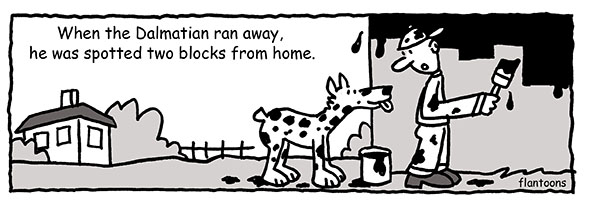
Take a look at this email sent by a manager to his employees. Pay attention to the orange idioms which all relate to the body. Do you know what they mean?
Note: The tone of this email is informal for a business correspondence. I have used a lot more idioms than you would expect to find in an email. I would not recommend using so many in real-life!
Colleagues,
Collocations refer to words that usually go together. For example, basic collocations are make and do:
We say, I made a mistake, not I do a mistake.
We say, I do my homework, not I make my homework.
Margaret Thatcher, the British female prime minister, has died after a stroke aged 87.
She was elected Prime Minister in 1979 and served for 11 years until she was forced to step down by her party in 1990.
A Soviet journalist called her the "Iron Lady", a nickname that became associated with her uncompromising politics and leadership style.
No one, nobody, none, nothing, neither and no are all examples of negative pronouns. Negative pronouns indicate the non-existence of people or things.
Which one we use depends on the subject of the sentence. We do not use another negative in a clause with nobody, no one or nothing. e.g "I don't do nothing."
A: Hey! Have you ever seen the cartoon, The Simpsons?
B: Duh! Everyone has seen The Simpsons!
A: What does Homer Simpson say when he makes a mistake?
B: He says "d'oh"!
D'oh is an example of an interjection. Homer says d'oh when he makes a mistake or something does not happen in the way he had planned.

This joke is based on the double meaning of spotted.
Dalmatians are white dogs with black spots. The Dalmatian dog in the cartoon has black spots on his body. When something has spots on it, we can say it is spotted: he is a spotted dog.
These two expressions are very similar, they both basically mean if something happens. The main difference in use is grammatical.
The meaning of these two sentences is the same.
She took an umbrella, just in case it rains.
She took an umbrella in case of rain.
In both cases, she took an umbrella because it may rain later.
Adverbs of manner are used to tell us the way or how something is done.
An adverb can be added to a verb to modify its meaning.
"She plays piano." - An adverb of manner can be added to the verb (play) to modify its meaning and give us more information on how she plays piano.
"She plays piano beautifully."
"She plays piano softly."
When something happens once in a blue moon, it very rarely happens.
"Since my daughter was born, I only go out with my friends once in a blue moon."
"My brother is so good at chess I only beat him once in a blue moon."
When you say that someone is living on another planet, you are saying either they do not notice what is happening around them or they are not realistic.
Read this article about an event that happens most years in England. Pay particular attention to the words in orange.
Students studying at our Bristol English school have something very special to do this June that's happening less than one hour away.